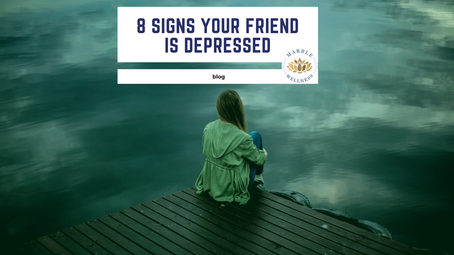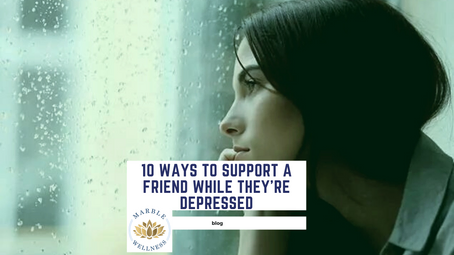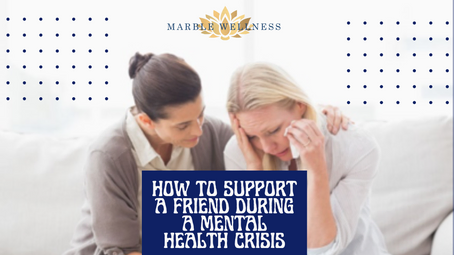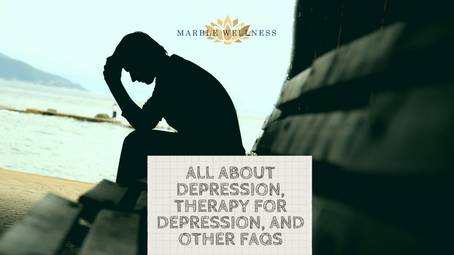“Ugh, I’m so depressed.”

So, What is Depression?
Click Here to learn more about Depression from the Mayo Clinic.
As a mental health therapist, I am so glad to see the rise in awareness of mental health and the call to de-stigmatize it. At the same time, this has increased the colloquial use of a clinical term. In passing, people call themselves “depressed.” Or they off-handedly say it about someone in their social circle. In and of itself, it’s not hugely problematic.
But it has pointed out to me the need for increased education around mental health, just as much as increased awareness about it. Why? Because knowing the difference between someone actually being depressed and someone using the term to describe a day or two of sadness that doesn’t meet other criteria for depression changes how you interact with them, especially the closer you are to that person.
It is not your “job” as a layperson to diagnose depression. But as a loyal friend or loving family member, knowing the signs of depression may help you understand why someone close to you is suddenly acting very strangely. And you know, that can feel good. To understand that your friend isn’t ignoring you; isn’t not showing up to things because they are mad at you; hasn’t become a person who is a pessimist with no energy. No, it is not about you or anything you did. They are hurting. Suffering, actually. And on an average day, you may not have the opportunity to stop and think about what might be going on. So it’s hard to realize that a few of the behavioral and personality changes that have occurred are due to something deeper.
Therefore, by becoming even a little educated about depression, it becomes easier to recognize some of the symptoms and may help you give that person some grace, an extra smile or hug, or may open the door for you to have an honest conversation about steps they may need to take to get help and ultimately feel better.
Without further ado,
Here are 8 signs from a St. Louis, MO Therapist that your friend, coworker, or family member may be suffering from depression:
They aren’t socializing as much as they usually do.
Turning down invitations, canceling a lot the day of plans/an event, not reaching out to plan even grabbing a drink or catching a movie.
They’re cranky. A lot.
This is atypical for your otherwise easygoing or jolly pal.
You notice they’re talking about how sleepy they are.
Or that they didn’t sleep a full night last night. Or went to bed super early and still couldn’t drag themselves out of bed this morning. Again, this is unusual for this person.
Your otherwise-healthy friend is getting sick a lot
The kind of sick you notice, not the kind used to get out of doing something. Runny nose, fever, stomachaches.
You *might* notice a weight change-10 lbs on or off in about 4ish weeks.
Sometimes, this can be hard to notice, especially during winter months where it is easier to cover up. Listen for the friend saying it’s been harder to find things to wear or that they’ve had to go buy new clothes because nothing fits.
You often wonder if they’ve just been crying when you see them (or you know they have).
Their memory is off
They are having trouble recalling a conversation or plan from even a day prior.
They are moving slower.
As in: their walking pace has slowed, or they take longer than usual to pack up for lunch outside of the office, or they start showing up late to meetups when they are typically an on-time person.
These of course are not all the signs or symptoms of depression. But they are things you can notice. A few more notes about these symptoms:
- These are about CHANGES in behavior. If any of these apply to your friend on a normal basis, the mere presence of one or a few of these symptoms does not indicate a potential mood disorder.
- The change should be persistent. In other words, you should notice it more than once or twice in order for it to start to reach the threshold of a meaningful change in behavior. Why? Because we’re human and all have “off” days!
- The presence of one sign alone is unlikely to indicate depression.
- Conversely, it does not mean all 8 need to be present for you to think “ahh, it’s depression.”
Depression really sucks.
It hurts in such a unique, almost inexplicable way. But having friends who are graceful with you through it is meaningful to every single person who suffers through it. And I want you to be able to be that person, for your people. So, next time you hear yourself thinking “what the heck is going on with Sally from the water cooler?”, reflect on these signs and see what you come up with.

Stay tuned for another post coming soon about what you can do, as that friend, to intervene or be supportive once you know it is depression.
Talk to you soon!
Edit: wondering how to support or help your friend who is depressed? Here’s a blog we wrote on how to do just that!
10 Ways to Support a Friend While They’re Depressed
Start Therapy in the St. Louis Area
If you live in the St. Louis metro area and are ready to improve your mental health, our expert St. Louis therapists are here to help. Not only do we have a team of therapists in Ballwin, MO, but we have also recently expanded to serve the Lake St. Louis and Wentzville area! Reach out to our Client Care Coordinator today to discuss your therapy options, both in-person and via online therapy in Missouri.
Contact Us!
Learn About Our Group Offerings

Additional Counseling Services at Marble Wellness in St. Louis, MO
Counseling services are designed to help set you on a path of living a more fulfilled, calm, and happy life. Our St. Louis area therapists have a variety of training backgrounds and areas of expertise. We specialize in anxiety, depression, grief, chronic illness, therapy for men, couples, and maternal overwhelm. Our practice also helps new moms with various postpartum concerns, moms in the thick of parenting, and moms with teens. We can also chat from wherever you are in the state with online therapy in Missouri. No matter where you are in your journey, we would love to support you.



